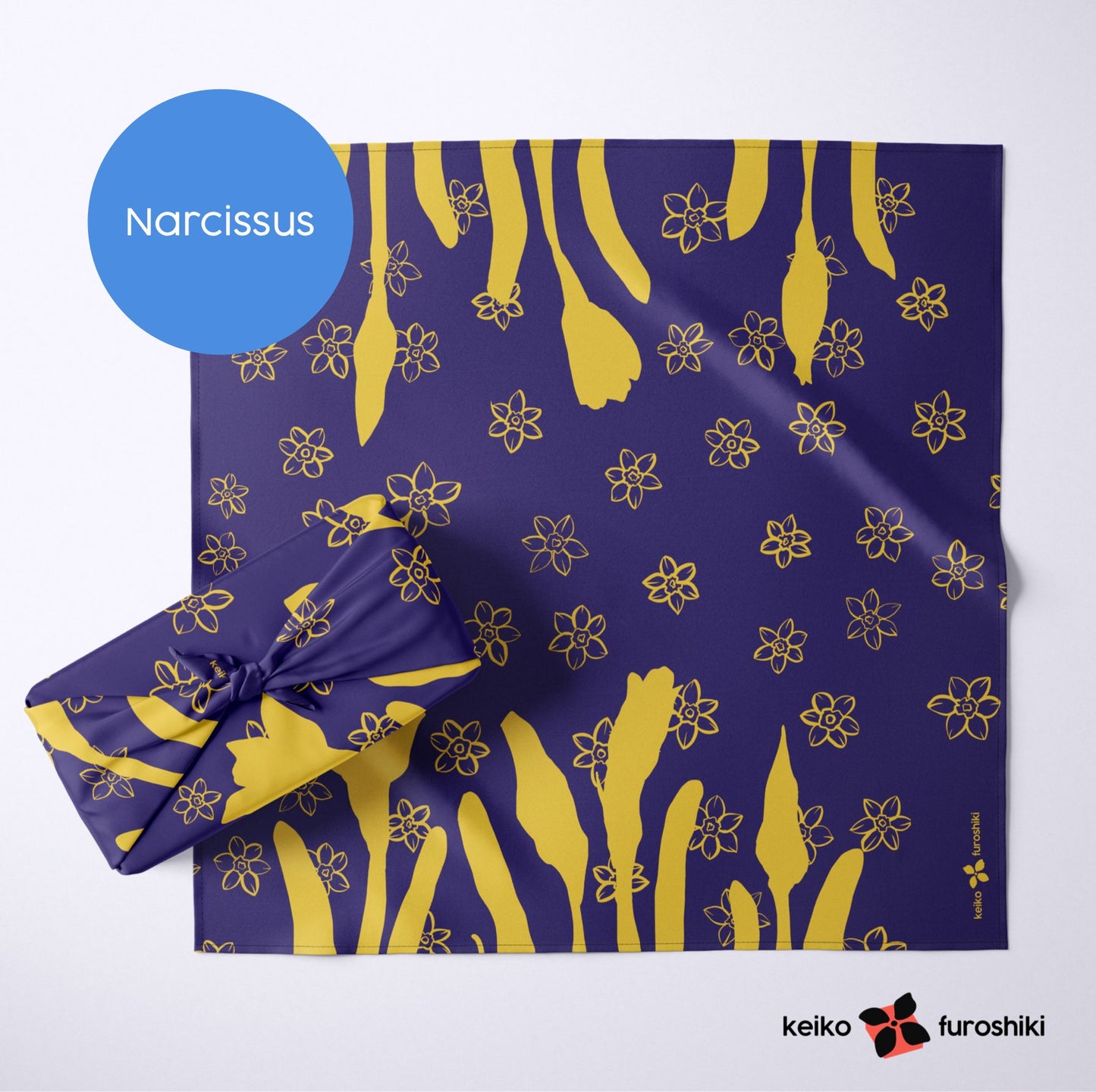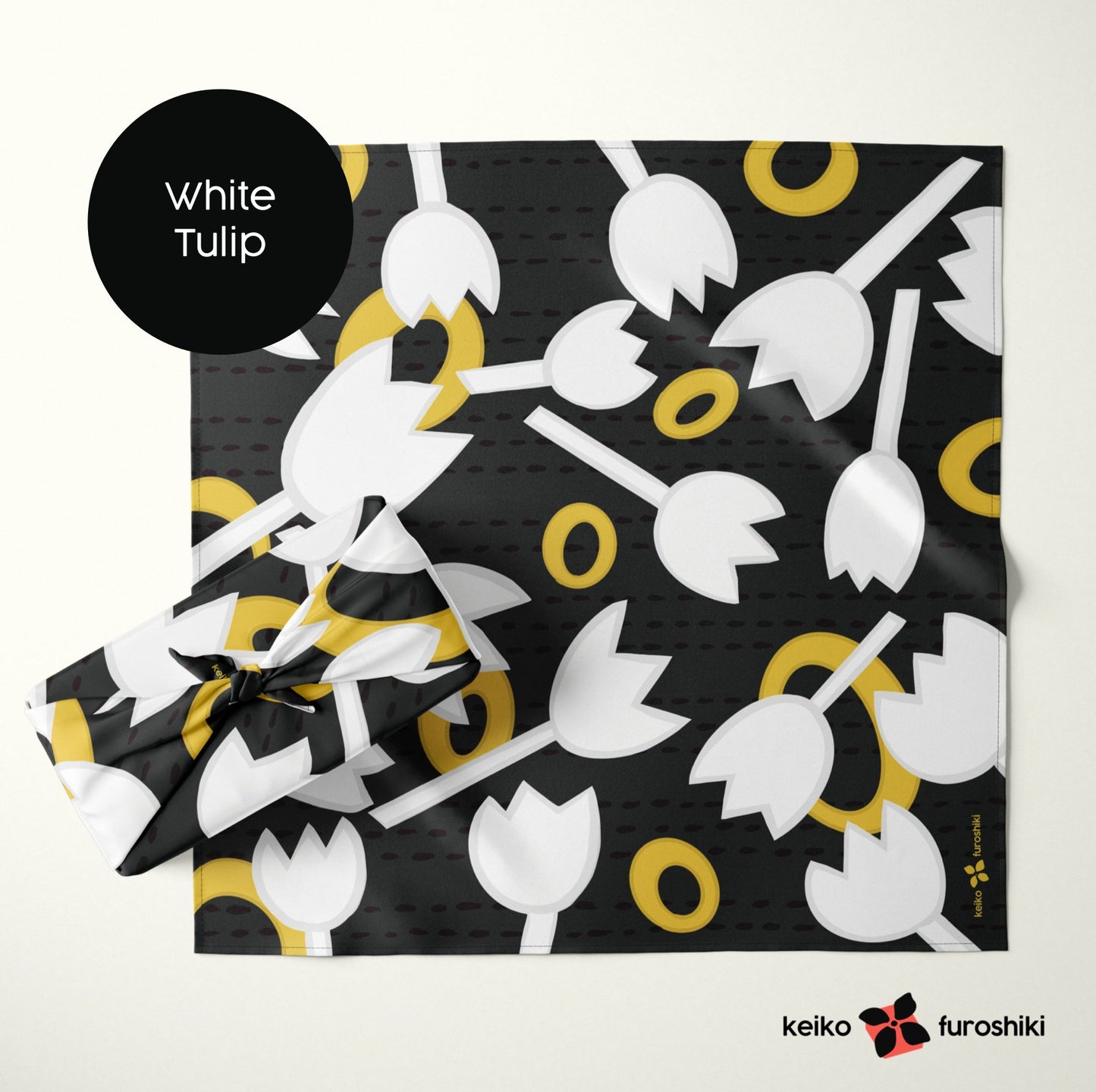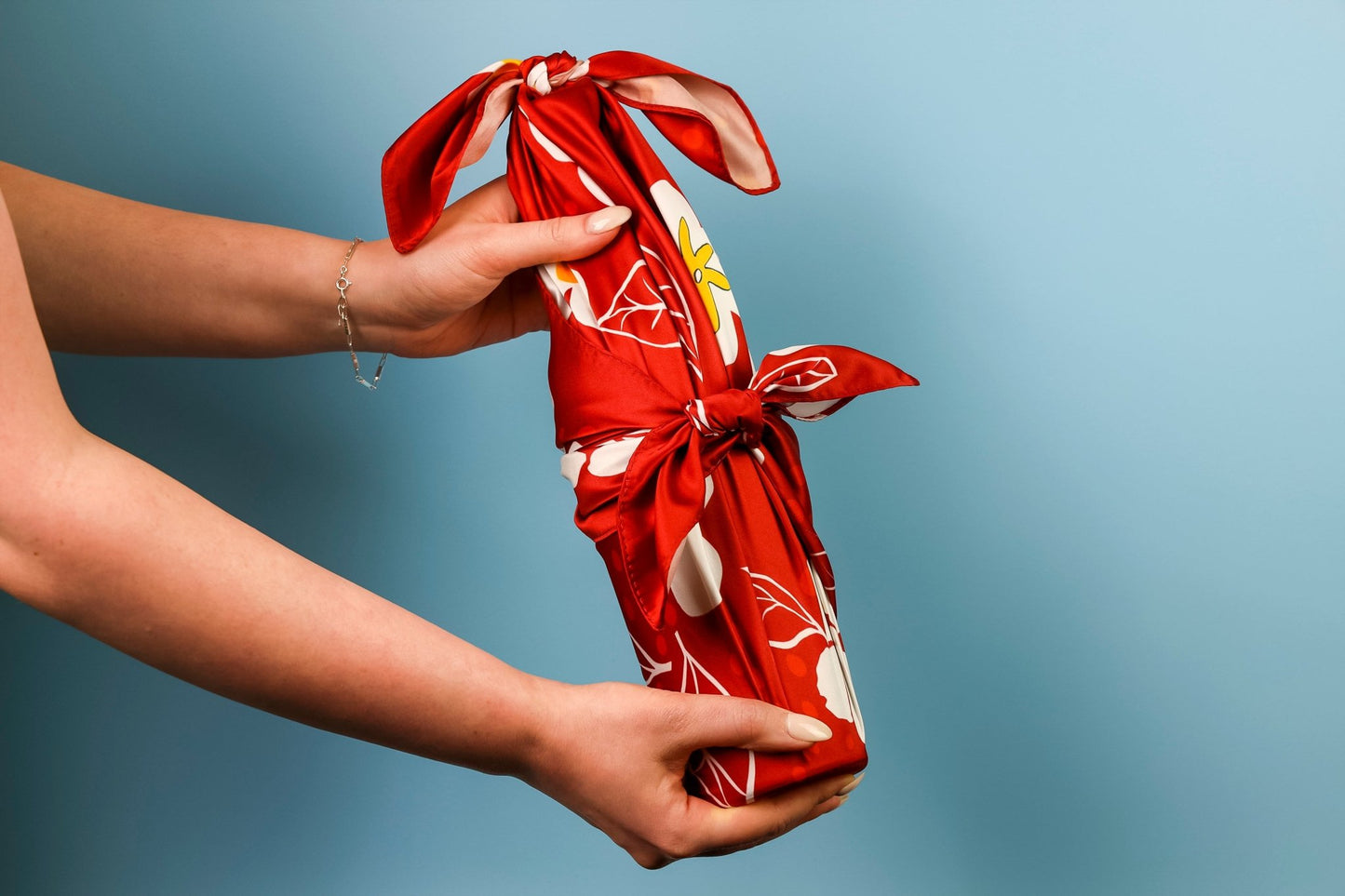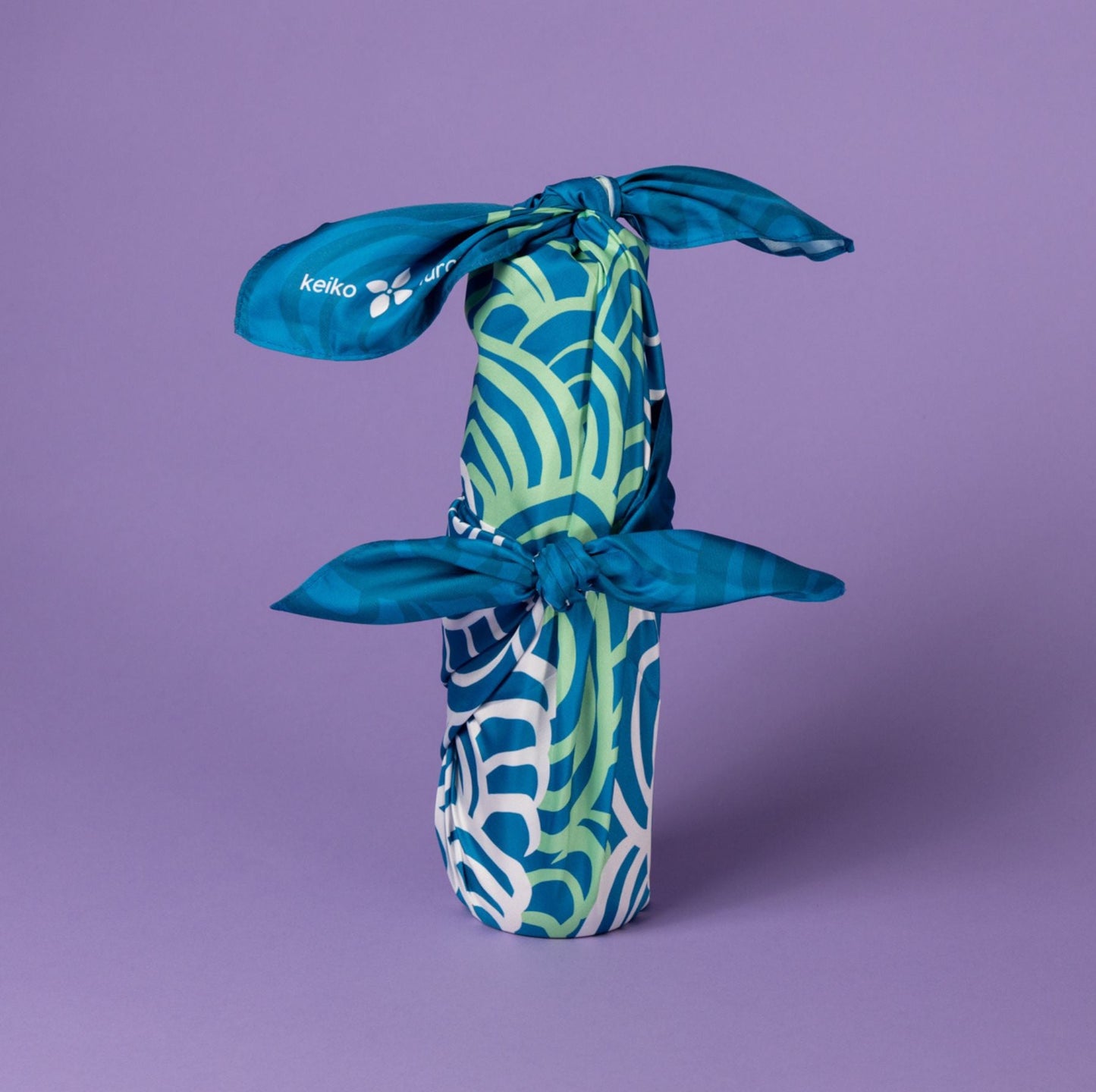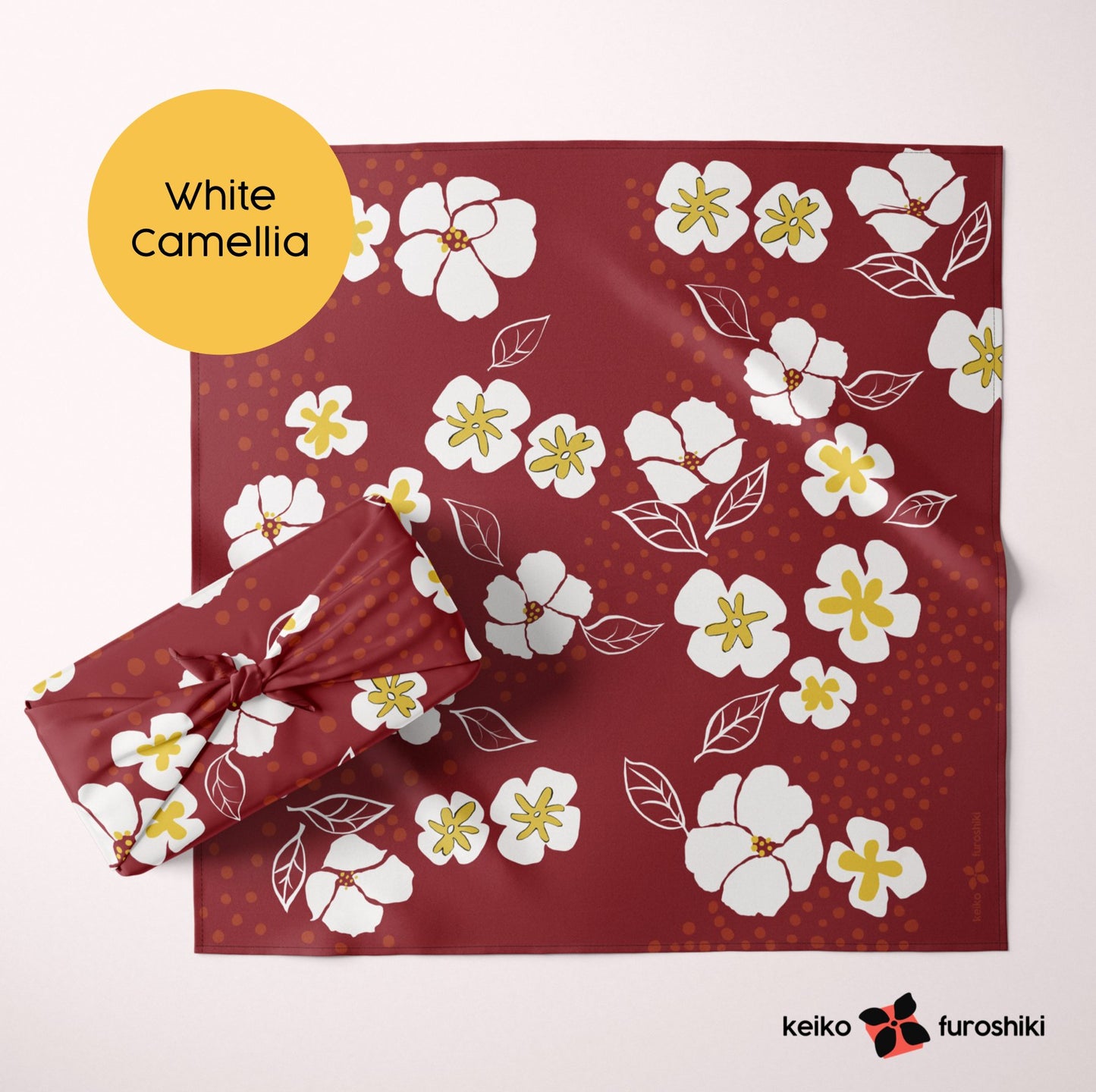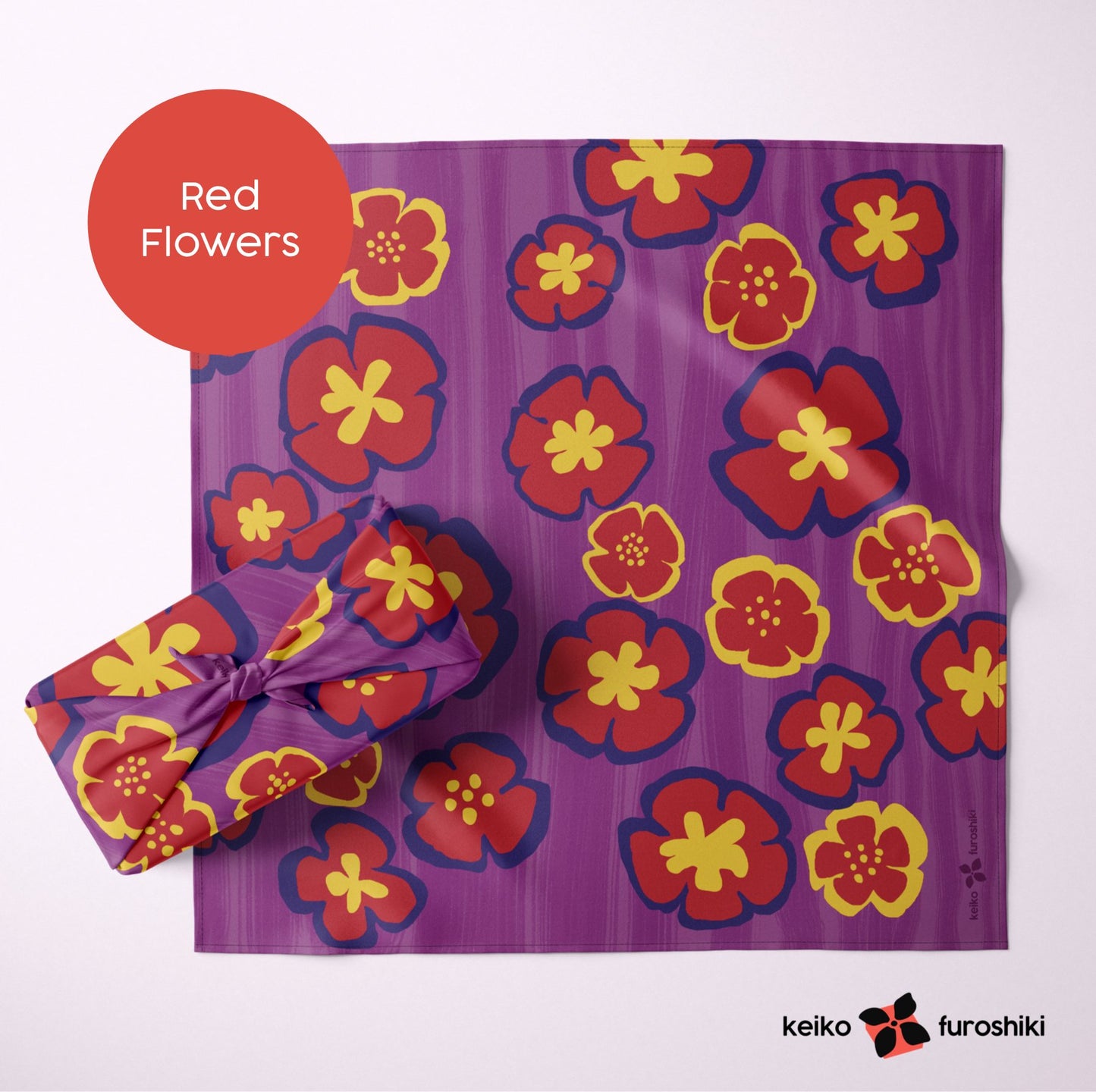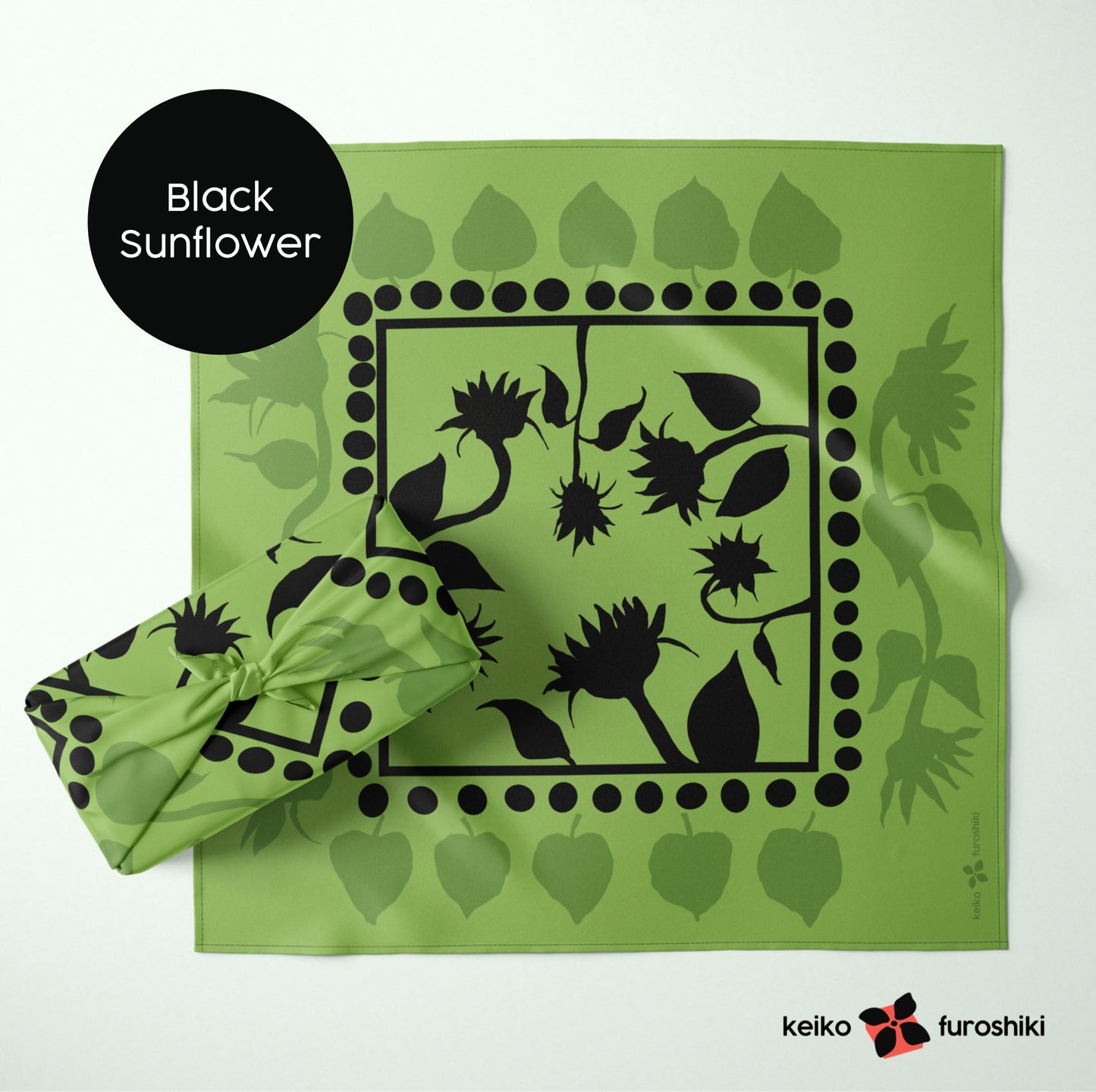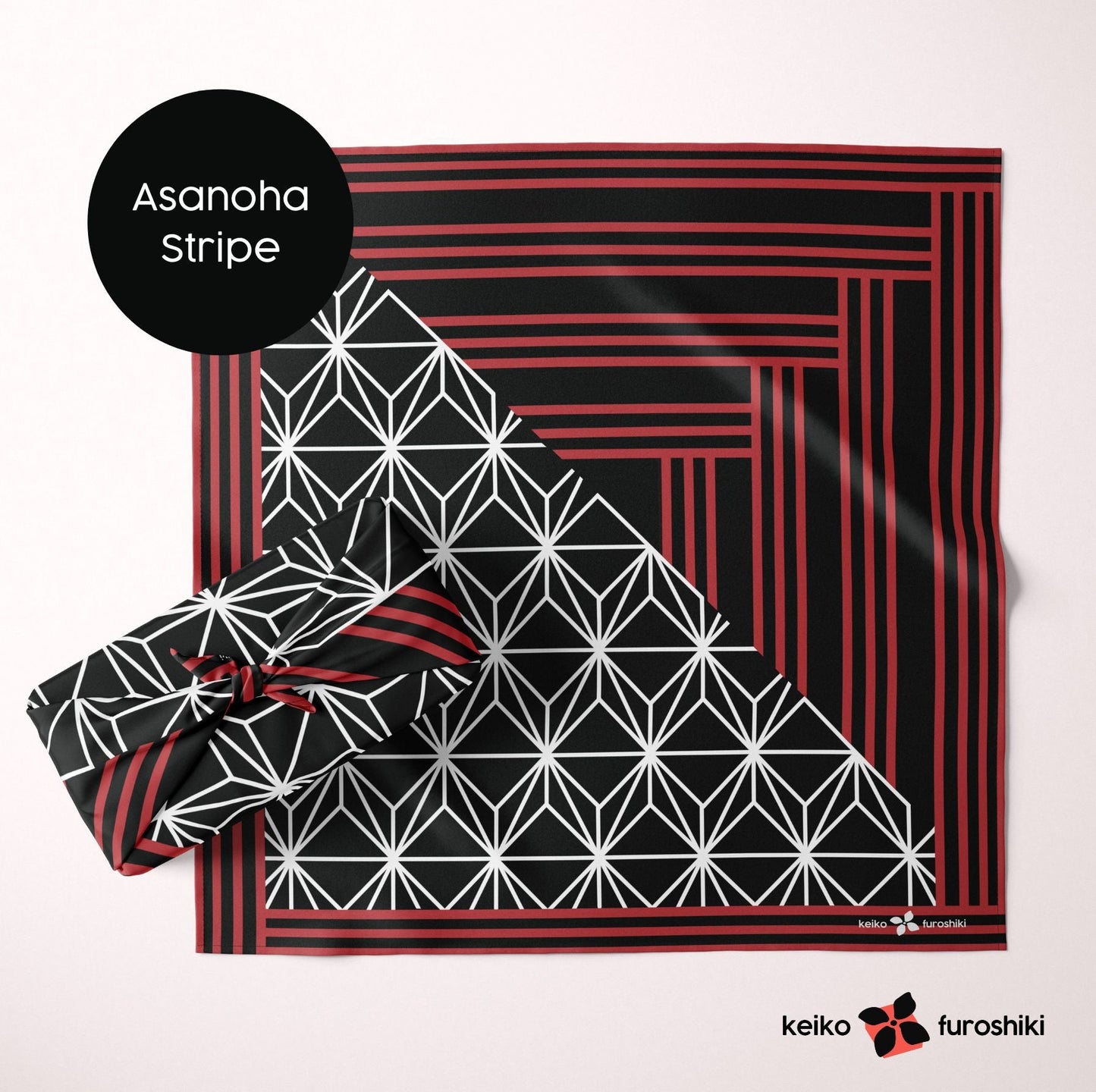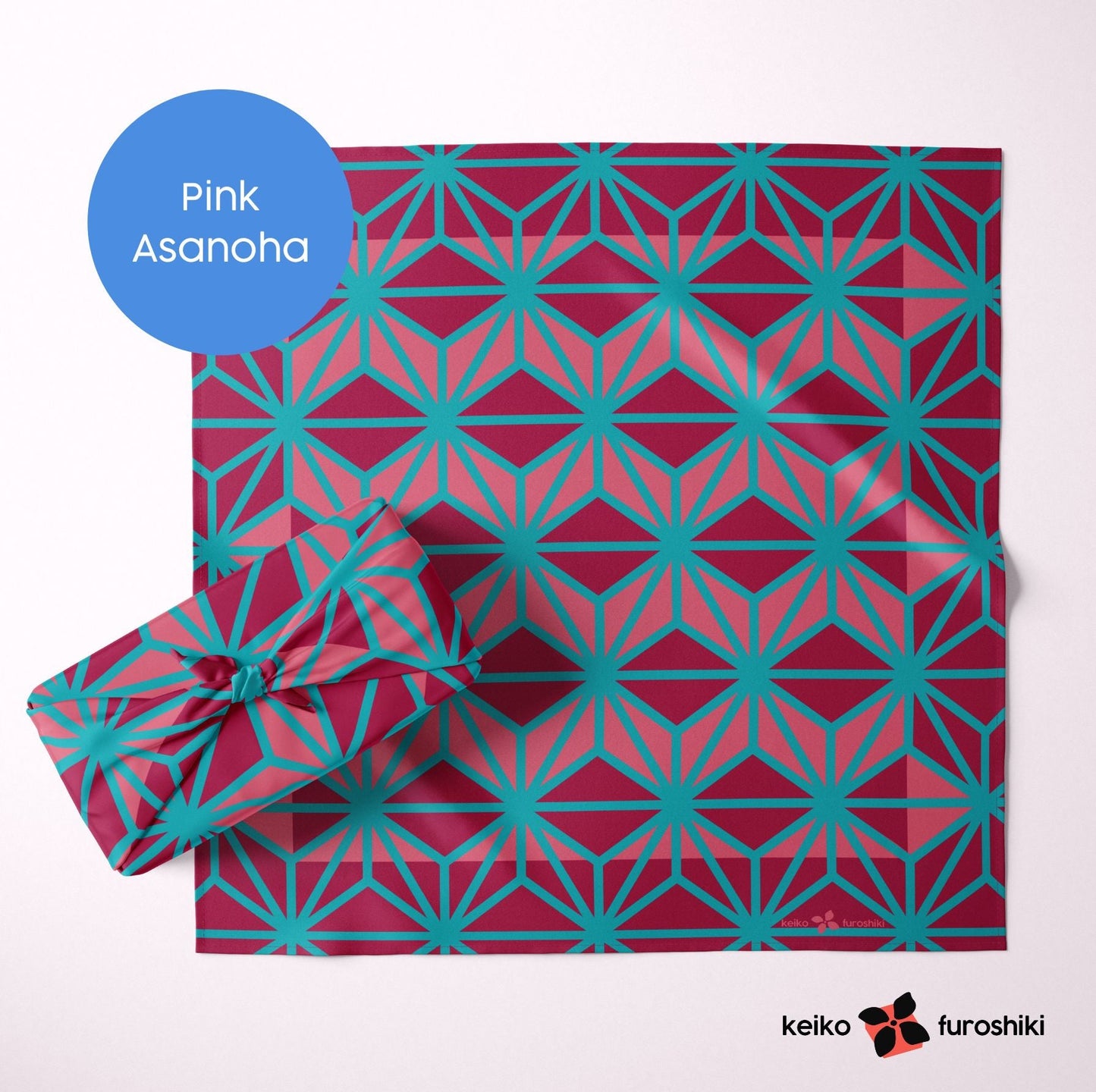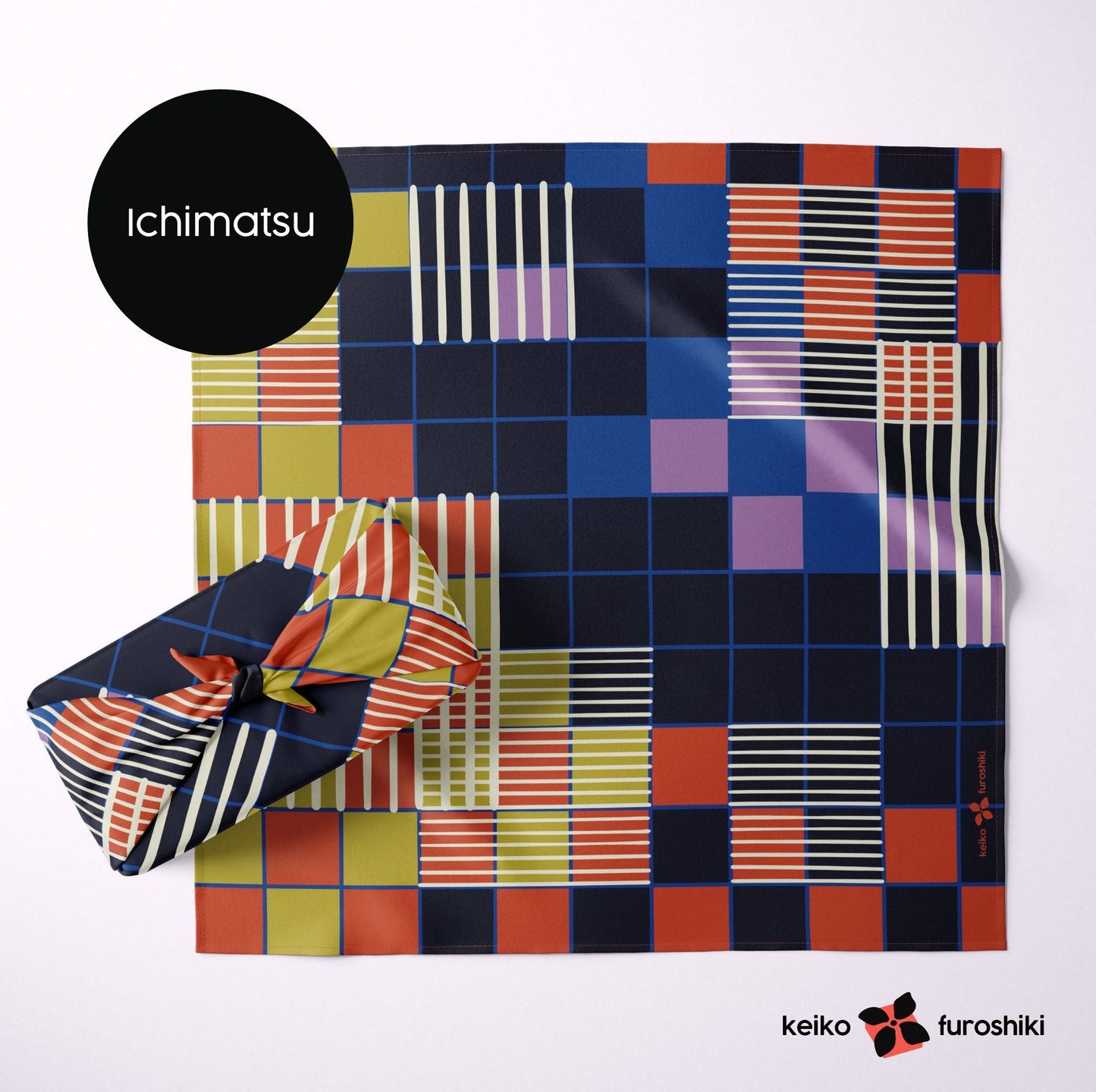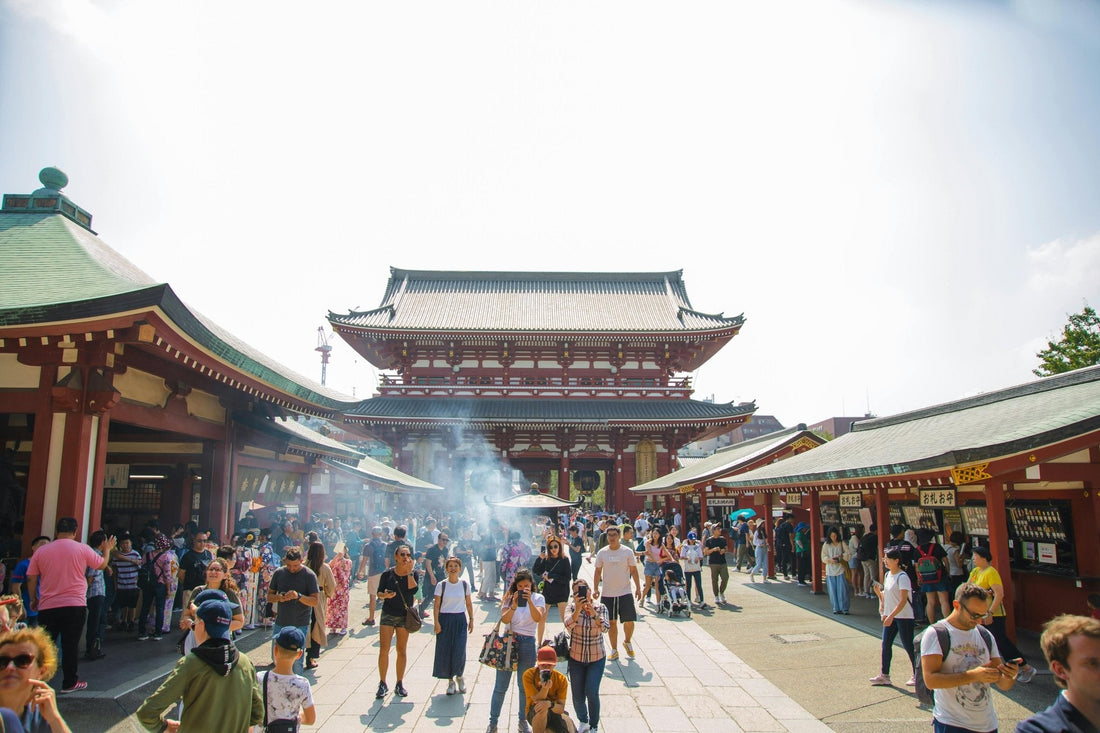
What Japan Can Teach Us About Sustainability: Lessons from Furoshiki
Today, when concerns about the environment loom large, adopting sustainable living practices has become more imperative than ever. As we celebrate Earth Day, it's worth looking to cultures around the world for inspiration on how to tread more lightly on the planet. Japan, with its rich history and deeply ingrained traditions, offers a plethora of valuable lessons in sustainable living that we can all learn from.
Conscious Resource Use
One of the fundamental principles of sustainable living is making conscious choices about the use of natural resources. In Japan, this ethos is deeply embedded in daily life. For instance, households diligently conserve electricity and water by turning off lights when not in use and shutting off faucets while handwashing dishes or brushing teeth. These habits, ingrained from childhood, serve as a cornerstone of sustainable living.
Moreover, Japan has implemented legislative measures to promote environmental conservation and resource management. Laws such as the Basic Environment Law and Energy Conservation Laws set targets and regulations to ensure responsible resource use and minimize environmental impact.

Central to Japanese sustainability is the concept of mottainai, which conveys a sense of regret over waste. This philosophy encourages mindfulness in consumption, urging individuals to value and make full use of resources. It's a call to reduce, reuse, and recycle, deeply embedded in daily routines. For instance, many Japanese households practice meticulous waste separation, ensuring that recyclables are properly processed.
The mantra of "reduce, reuse, recycle" finds strong resonance in Japanese society. Take, for example, the prevalent use of eco-friendly shopping bags, known as “my baggu" which significantly reduce the consumption of plastic bags. Additionally, carrying a personal water bottle minimizes reliance on single-use plastic bottles. Furthermore, Japanese households are adept at minimizing food waste by purchasing only what they need and repurposing leftovers creatively.
These practices align with Japan's stringent recycling laws, which mandate proper waste management and recycling initiatives. Legislation such as the Containers and Packaging Recycling Law ensures businesses take responsibility for recycling their packaging materials, contributing to a circular economy.

Supporting Local and Traditional Crafts
Japan's reverence for traditional crafts not only preserves cultural heritage but also promotes sustainability. Crafts such as Sashiko, a form of decorative reinforcement stitching, and Kintsugi, the art of repairing broken pottery with gold lacquer, exemplify this ethos. Sashiko involves using simple running stitches to create beautiful patterns on fabric, while Kintsugi transforms broken ceramics into stunning pieces of art, highlighting imperfections as part of the object's history. By reviving and supporting these crafts, individuals contribute to the sustainability of local economies and reduce the demand for mass-produced goods.
In addition to legislative efforts, Japanese culture also emphasizes spiritual concepts related to nature and intergenerational equity. Shinto, Japan's indigenous religion, reveres nature as sacred and emphasizes harmony between humans and the natural world. This spiritual connection fosters a deep appreciation for the environment and instills a sense of responsibility to preserve it for future generations.

Embracing Minimalism and Mindfulness
The concept of minimalism, characterized by simplicity and decluttering (hello Marie Kondo), is deeply ingrained in Japanese culture.
For instance, the practice of kyogi, which involves thinly shaved wood sheets traditionally used for wrapping food, underscores the Japanese preference for minimalist packaging over wasteful alternatives. And furoshiki, reusable gift wrap, is a sustainable alternative to disposable wrapping paper. Additionally, the minimalist aesthetic extends to fashion choices, with many opting for vintage or repurposed clothing over fast fashion.
This minimalist approach is rooted in mindfulness, a concept that permeates Japanese culture. Mindfulness encourages individuals to be present in the moment and to appreciate the beauty of their surroundings. By cultivating a mindful awareness of their actions and consumption habits, the Japanese strive to live in harmony with the natural world and minimize their ecological footprint.
Furoshiki: The Art of Sustainable Wrapping
One of the most elegant examples of Japan's eco-friendly customs is furoshiki, the traditional art of wrapping items in cloth. Dating back to the Nara period (710–794 C.E.), furoshiki was initially used to protect valuable goods. The term itself combines "furo" (bath) and "shiki" (spread), reflecting its use in wrapping clothes at public baths.
In today's context, furoshiki offers a stylish and reusable alternative to disposable wrapping paper. By adopting this practice, we can significantly reduce waste and promote a culture of reuse. Imagine wrapping gifts, carrying groceries, or even fashioning a handbag—all with a simple square piece of cloth. This not only showcases creativity but also underscores a commitment to the environment.

Japan offers a wealth of inspiration for sustainable living, rooted in centuries-old traditions, legislative measures, and spiritual concepts. By embracing precise examples of mindfulness, minimalism, and tradition, we can all take meaningful steps towards a more sustainable future for our planet. As we celebrate Earth Day, let us draw upon the wisdom of Japanese culture to guide our journey towards a more harmonious relationship with the environment.


